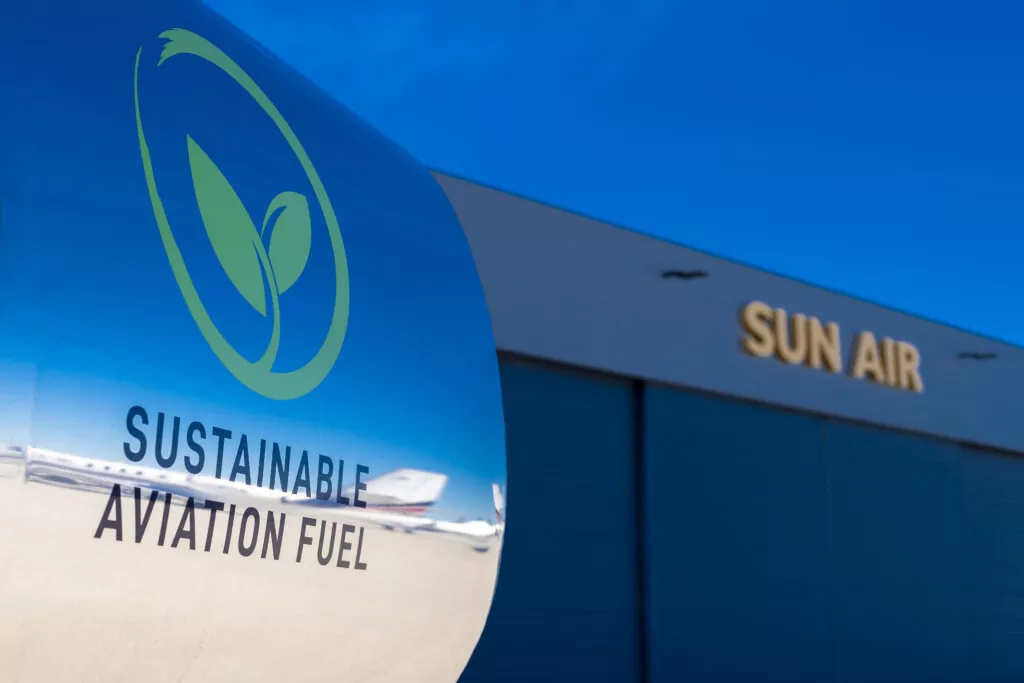There are many times in life when you get a do-over. Maybe a loved one gave you a second chance. Perhaps you had an extra slice of bread to replace the one you burnt in the toaster at breakfast this morning. Your college professor may let you retake the test. This do-over is extremely important for rethinking our carbon offset approach.
For the aviation industry, the do-over comes with the opportunity to make things right with the environment. For years, air travel has caused quite a negative stir, with environmentalists and others looking out for the planet. We take what engineers of yesteryear created, and we make it better. Today, we are wiser about the harm our industry can cause the environment. So, we look for ways to find greener, more sustainable practices. Sun Air Jets has been implementing carbon offset initiatives so that they do their part to leave the world better than it was.
Dangers of Jet Fuel
To get from point A to point B, jets need to fuel up. And that means burning fossil fuels. What’s more, emissions from the aviation industry had an environmental impact due to the release of greenhouse gasses.
Every time an airplane burns jet fuel, it releases CO2 emissions. In addition to the CO2 emissions, which are harmful in their own right, let’s not forget that fuel spills also have the potential to contaminate soil and groundwater for years to come.
Because the damage caused by these fuels is so great, many are working hard to find more sustainable alternatives and less damaging to the environment.
It may take some time until they are fully implemented, but change is coming.
What Does Carbon Offset Mean?
There are a lot of terms tossed around about eco-friendly practices – one of the big ones is carbon offsetting. What does it mean, exactly?
In a nutshell, it means doing something good to offset the harm that has been done. For instance, if a company has released pollutants into the air, it may buy carbon credits to make up for the greenhouse gasses it emitted into the atmosphere. This could include planting trees to remove the carbon emitted.
In other words, if a company says they are taking carbon offset initiatives, it means they recognize its business practices may have caused harm to the environment, such as the burning of fossil fuels in the aviation industry. And they are taking an initiative to invest in a carbon credit to offset what they’ve emitted.
More and more companies are doing this in all types of industries.
Eco-Friendly Practices in the Aviation Industry
Those in the aviation industry have vowed to make changes to better their eco-friendly practices. Many commercial airliners around the world have signed sustainable aviation fuel agreements to try to make a more positive impact on the environment and take carbon offset initiatives. These are really big changes and they won’t happen overnight. However, they are a step in the right direction for the future.
A few initiatives that many are looking to put into practice include:
- Minimizing fuel consumption. To reduce fuel consumption, many airlines are taking steps to reduce the weight of airplanes. Since the heavier the aircraft, the more fuel it burns – reducing its weight can lower fuel consumption.
- Sustainable Aviation Fuel. Using biofuels, such as a 30/70 blend of low-carbon, sustainable aviation fuel. Current biofuels work well, but their price is higher than regular jet fuel, making it a no-go for many airlines. Different types are being created to find something that will bring benefits without added cost.
- Eliminating single-use plastics. Many airlines are taking the initiative to stop single-use plastics on their flights and in their ground operations. This is a small yet powerful step.
- Carbon offsets. Carbon offset companies allow airlines and travelers to purchase carbon offsets to protect the environment. This may contribute to wind farms, planting trees, or other renewable energy sources.
- Educating others – including passengers. They can show passengers the power of change by taking steps to be more sustainable and aware of the environment. Things they may not have thought about – such as single-use plastics – may spark them to change their lives.
Carbon Offset Initiatives at Sun Air Jets
The team at Sun Air Jets is committed to making a positive change within our environment. They spend a lot of time in the sky and feel that taking steps to focus on sustainability practices is needed to make a difference in the future.
Sun Air Jets has partnered with a leading carbon offsetting company, 4AIR, to reduce its carbon footprint and compensate for the carbon emissions that are released by its charter aircraft. The carbon credit they purchase allows money to be spent balancing the emission with sustainable solutions around the globe.
By selling carbon offsets, 4AIR funds project that produce renewable energy and offset greenhouse gasses. Some of their projects include landfill gas capture, wind power, and abandoned coal mines.
Importance of Carbon Offset Initiatives
Sun Air Jets purchased 4,452 metric tons in 2021 via Terrapass. And this goes to fund projects that offset the emissions. Did you know that 17,550 metric tons are equivalent to planting 290,000 trees? Powering over 2,100 homes with renewable energy? Recycling over 746,000 bags of trash? Taking 3,800 cars off the road?
Sun Air Jets is doing its part to impact the environment positively with its private charter services. The aviation industry may not be the best at keeping the air clean, but they are making strides in finding alternative solutions and making better choices.


No comments for “How Sun Air Jets Is Implementing Carbon Offset Initiatives”